The Revolutions of 1848
Part 2: France and Germany
France
It wasn't just poor people in France who rose up in 1848. Doctors, lawyers, merchants, and other members of the middle class took place in public campaigns for an increase in opportunities both economic and political. Leaders of this movement put on banquets at which they made speeches in favor of the kinds of the change that they were seeking, in hopes of gaining donations to their cause. One of the things that most people in France wanted at this time was the right to vote. By 1848, only 1 percent of the population could vote, and a majority of people thought that it was time to enact legislation to provide it for the rest. The banquets became quite popular and attracted a large number of people. On Feb. 22, 1848, officials in Paris canceled a scheduled banquet because they feared that the banquet would turn into an organized protest. The cancellation of the banquet did just that, as a crowd descended on the streets of the capital, forming barricades and taking up arms to press their case for reform. Joining them were the citizen-manned militia the National Guard and an army garrison stationed in Paris. Prime Minister Francois Guizot resigned, but it was not enough for the crowds. King Louis Philippe was unable to impress his subjects with enough of a set of reforms and ended up fleeing his throne, going into exile in the United Kingdom. On February 26, the protesters organized a provisional government, the Second Republic, and set about making change. One of the first acts of the new government was the granting of universal (for men) suffrage; at a stroke were created 9 million new voters. Not long afterward, a new government was in place. Heading up the provisional government was an Executive Commission, formed by five co-presidents; the new legislative body was the National Constituent Assembly. 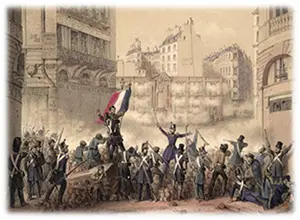 The other main goal of this new government, unemployment relief, proved more problematic. On May 15, a large group of workmen stormed the Assembly and announced the creation of yet another new government. This revolt did not have the support of the National Guard, and the leaders were arrested and later tried. Two weeks later, fed up with the lack of a quick solution, a few thousand Parisians rioted. Further clashes between protesters and security forces took place in June, with more seizures of parts of the city and more protesters armed and standing behind barricades in what came to be known as the June Days uprising. Even with a force of more than 120,000, it still took the army two days to clear the streets. Things settled down considerably after that, but tensions were still high in some parts of the capital and in the country as a whole. A new election in December saw the election of one president, to take the place of the committee of five. The winner of that election was Louis-Napoléon Bonaparte, nephew of the famous Emperor. Germany
The dean of German states was Austria, led by its charismatic Chancellor Klemens von Metternich, who had so impressed other European leaders at the Congress of Vienna, and by Emperor Ferdinand I. A large number of university students organized a street demonstration in Vienna on March 13, 1848, calling for a representative government and universal suffrage. The response from the government was for troops to make the protesters disperse, using force if necessary. Soldiers did fire their guns, killing some of the student protesters; in response, a large group of workers joined the street protest, swelling the numbers considerably. The Austrian parliament, the Diet, demanded that Metternich resign; he did so, fleeing to the U.K. That left the emperor, who suffered from a severe form of epilepsy, without his key adviser. The regency had more than one member, however, and his uncle, At the same time, other cities within the Austrian Empire were the scenes for uprisings, among them the Italian metropolises of Milan and Venice and the Hungarian city of Pest. Ferdinand sent a large contingent of his troops to Hungary to quell the rebellion there; the result was a victory for the revolutionaries. The demonstrations in Vienna in October were very large indeed. Ferdinand fled Vienna and later abdicated, leaving the throne in the hands of nephew Franz Joseph. Next page > Hungary and Elsewhere > Page 1, 2, 3 |
|
Social Studies for Kids
copyright 2002–2024
David White



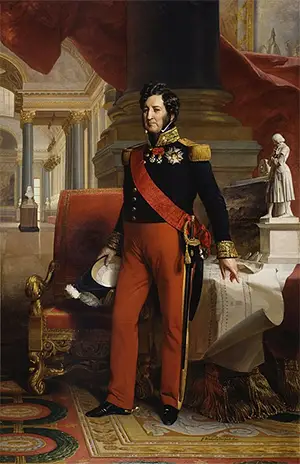 The most wide-ranging change was probably in France, which went from a monarchy to a republic. King Louis-Philippe was the third king to rule since the end of the First French Empire, headed by Napoleon Bonaparte. Louis-Philippe had taken power in July 1830, promising to abide by the Charter of 1830, which had taken away some of his power. He was very much a friend to the upper classes, particularly the financial sector, and he himself became a very rich man during his reign. Those who owned land had money and power, and the king sided with the powerful when he had a choice.
The most wide-ranging change was probably in France, which went from a monarchy to a republic. King Louis-Philippe was the third king to rule since the end of the First French Empire, headed by Napoleon Bonaparte. Louis-Philippe had taken power in July 1830, promising to abide by the Charter of 1830, which had taken away some of his power. He was very much a friend to the upper classes, particularly the financial sector, and he himself became a very rich man during his reign. Those who owned land had money and power, and the king sided with the powerful when he had a choice.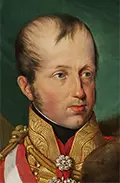
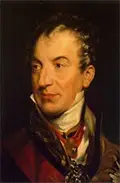
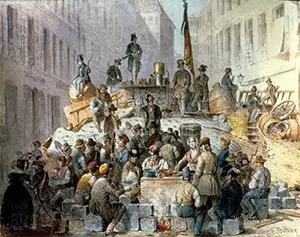 Archduke Louis, helped him appoint a series of pseudo-chancellors. The Diet drafted a constitution in April, but the protesters would have none of it because they weren't also guaranteed the right to vote and again took to the streets in large numbers. The emperor continued to grant concessions, including making the Imperial Diet an elected Constituent Assembly. By August, however, high unemployment and a shortage of supplies were the twin culprits that continued to drive civil unrest.
Archduke Louis, helped him appoint a series of pseudo-chancellors. The Diet drafted a constitution in April, but the protesters would have none of it because they weren't also guaranteed the right to vote and again took to the streets in large numbers. The emperor continued to grant concessions, including making the Imperial Diet an elected Constituent Assembly. By August, however, high unemployment and a shortage of supplies were the twin culprits that continued to drive civil unrest.
